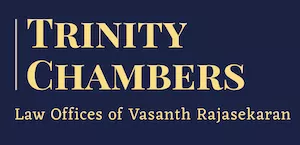Introduction
In a recent decision in Bhadra International India Pvt. Ltd. v. Airports Authority of India, the Delhi High Court held that a party cannot belatedly challenge an arbitral award on the ground of unilateral appointment after having actively participated in the arbitration without objection. The High Court acknowledged that unilateral appointments violate Section 12(5) of the Arbitration and Conciliation Act, 1996 ("Arbitration Act") but emphasised that a party waives its right to object if it consents to the arbitrator's appointment and proceeds with the arbitration without protest. In this article, we navigate through the facts of the case and the findings of the High Court.
Background of the Case
The dispute arose from a License Agreement dated 29.11.2010 between Bhadra International and the Airports Authority of India ("AAI"). Under the agreement, Bhadra was granted a license to provide ground-handling services at various airports. Clause 78 of the agreement contained an arbitration clause that allowed AAI to appoint a sole arbitrator unilaterally.
When disputes emerged over financial and operational issues, Bhadra invoked arbitration on 27.11.2015, requesting AAI to appoint a sole arbitrator. In response, AAI appointed a former Supreme Court judge. At the first arbitration hearing on 22.03.2016, both parties explicitly stated that they had no objection to the arbitrator's appointment. This acknowledgement was formally recorded in the arbitral proceedings, and neither party challenged it.
Over the next two years, Bhadra actively participated in the arbitration without raising any jurisdictional objections, even filing interim applications under Section 17 of the Arbitration Act. On 30.07.2018, the arbitral tribunal ruled against Bhadra, dismissing all its claims.
Challenge before the High Court
After losing the arbitration, Bhadra challenged the award under Section 34 of the Arbitration Act before the Delhi High Court. Initially, it did not raise any objections regarding the arbitrator's appointment. However, in 2022, four years after the award, Bhadra filed an additional asserting that the arbitrator's unilateral appointment violated Section 12(5) of the Arbitration Act, thereby rendering the entire arbitral process void.
The Single Judge of the Delhi High Court dismissed this challenge, holding that Bhadra had willingly accepted the arbitrator's appointment, participated in the arbitration, and only objected after an adverse award. The present appeal was filed against that decision.
Arguments of Bhadra International
The appellant (Bhadra) made the following arguments:
- Unilateral Appointment is Void: Bhadra argued that the arbitrator's appointment by AAI was unilateral and violated Section 12(5) of the Arbitration Act.
- No Express Waiver in Writing: Relying on Bharat Broadband Network Ltd. v. United Telecoms Ltd. [(2019) 5 SCC 755], Bhadra contended that a waiver under Section 12(5) must be in writing, and since no such waiver existed, the award was invalid. Bhadra also cited TRF Ltd. v. Energo Engg. Projects Ltd. [(2017) 8 SCC 377] and Perkins Eastman Architects DPC v. HSCC (India) Ltd. [(2020) 20 SCC 760], which held that unilateral appointments are non-est and impermissible.
- Lack of Awareness: Bhadra argued that Section 12(5) was introduced via amendment after the arbitration had been invoked, and it was unaware of the legal implications at the time.
Arguments of AAI
The respondent (AAI) made the following arguments:
- AAI countered that Bhadra had itself invited AAI to appoint an arbitrator, consented to the appointment, and participated in the proceedings for over two years without raising any objection.
- The order dated 22.03.2016 explicitly recorded Bhadra's consent to the arbitrator's jurisdiction, and it never disputed this record until much later.
- AAI emphasised that permitting belated challenges would undermine arbitration, promote forum shopping, and waste judicial resources.
- Bhadra had not demonstrated any coercion or lack of choice in accepting the arbitration process.
High Court's Analysis and Ruling
On Acquiescence and Waiver of Objection
The High Court observed that Bhadra had multiple opportunities to challenge the arbitrator's appointment but failed to do so at the appropriate stages. It had itself invoked arbitration, requested AAI to appoint a sole arbitrator, and later expressly stated in a written procedural order that it had no objection to the arbitrator. Despite actively participating in the arbitration for over two years without protest, Bhadra did not raise any concerns about the arbitrator's appointment even in its initial Section 34 challenge to the award. It was only after receiving an unfavorable decision that it belatedly attempted to contest the arbitrator's appointment. Given these facts, the High Court ruled that Bhadra had waived its right to object and could not retrospectively invoke Section 12(5) as a basis to invalidate the arbitration.
On Interpretation of Section 12(5) and Its Waiver
The High Court acknowledged that unilateral appointments violate Section 12(5) but reiterated that this provision allows for waiver through an express agreement in writing. While no separate waiver document existed, the High Court held that Bhadra's conduct, including its written consent in the procedural order and sustained participation, amounted to an effective waiver.
Distinguishing from Bharat Broadband and Other Cases
The High Court noted that in Bharat Broadband, the party objected to the arbitrator's appointment as soon as it became aware of the illegality. Here, Bhadra had not only failed to object but had actively endorsed the arbitrator's appointment. This distinction, the High Court held, made Bhadra's case significantly different.
Impact on Arbitration
The High Court warned that allowing such belated challenges would incentivise losing parties to strategically delay objections, creating uncertainty and undermining the credibility of arbitration. A party that willingly accepts an arbitration process should not be allowed to nullify it retrospectively. In view of the above findings, the Delhi High Court dismissed Bhadra's appeal.
Comment
This ruling affirms that parties cannot exploit procedural provisions to overturn unfavourable awards. By ensuring that objections must be raised at the earliest opportunity, the decision safeguards arbitration from misuse.
The content of this article is intended to provide a general guide to the subject matter. Specialist advice should be sought about your specific circumstances.



